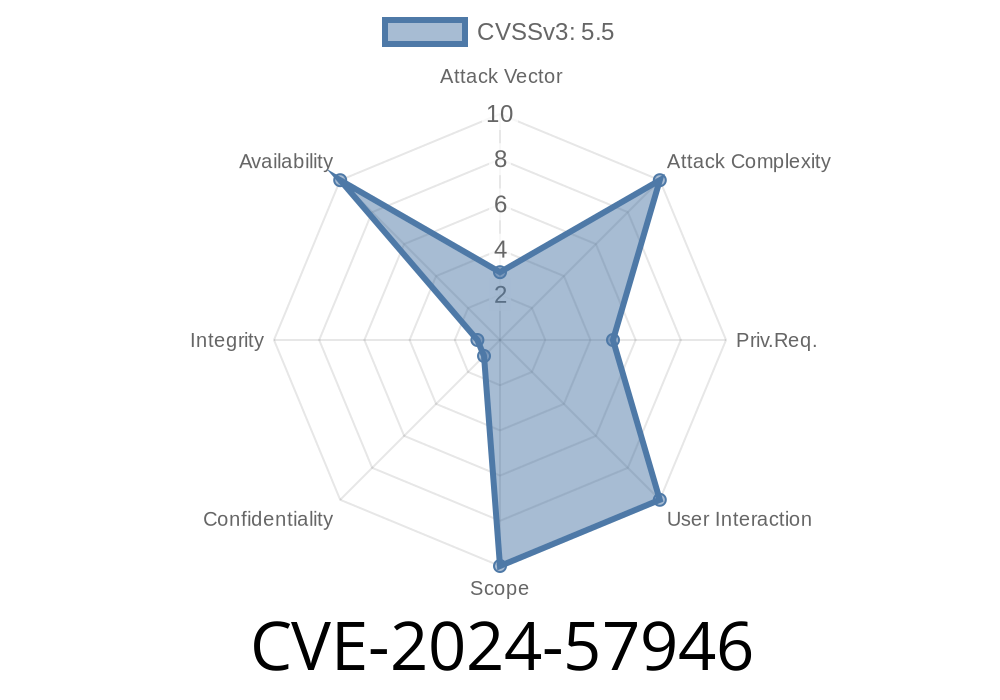A recently resolved vulnerability in the Linux kernel (CVE-2024-57946) centers on how virtio-blk, the virtual block device driver, handles I/O queues during system suspend and resume cycles. This post will break down the issue, show you code snippets, offer references, and walk you through the potential risks and mitigations associated with CVE-2024-57946 — all in plain language.
What’s the Problem?
When your Linux system goes to sleep (system suspend), virtio-blk must ensure that all disk operations (I/O requests) are safely completed. Previously, it did this by freezing the disk I/O queue. However, freezing creates a major risk: if you try to add new I/O work while the queue is frozen, the attempt may deadlock the kernel, causing unresponsiveness or even a kernel panic.
To be specific:
If someone calls bio_queue_enter() when the queue is frozen due to suspend, it might wait forever (deadlock), because the context is stuck in suspend state.
Marek (a Linux developer) reported this lock issue, shown by lockdep warnings:
Lockdep report
How Freezing Works
- The block I/O queue can be quiesced (paused after current operations finish) or frozen (completely stopped, new operations can’t begin).
- freeze is stronger and riskier. It blocks all new I/O, which can deadlock if used in the wrong context.
- The goal during suspend is just to make sure no I/O is left in flight, not to permanently block the queue.
The Bad Patch
A patch in Linux previously said:
> "Let's freeze the queue until system resumes!"
That seemed safe at first, but
- If any code tries to submit I/O during suspend, it waits for the freeze to end — which never happens because the system is asleep!
This led to real deadlocks on some systems and triggered lockdep diagnostics.
Instead of keeping the queue frozen during the whole suspend
1. Freeze and immediately unfreeze before suspend to drain any current I/O.
Here’s simplified pseudocode example showing the idea
// Before suspend: drain inflight IOs safely
blk_mq_freeze_queue(q);
blk_mq_unfreeze_queue(q);
// Now quiesce for suspend (lighter than freeze)
blk_mq_quiesce_queue(q);
// ... suspend operations ...
blk_mq_unquiesce_queue(q);
Old/Unsafe Version
blk_mq_freeze_queue(q);
// ... queue stays frozen during suspend ...
blk_mq_unfreeze_queue(q); // Only on resume!
This old method risked deadlocks if new I/O was requested during suspend.
Exploit Scenario
Let’s imagine a hypothetical kernel module or user-driven process that attempts to submit block I/O packets (like disk writes) during suspend:
The system hangs, leading to denial of service (DoS).
- On cloud or virtual machines, unexpected kernel hangs can result in outages and serious stability risks.
> Note: There’s no easy “one-liner exploit,” but the bug can be triggered in custom kernels or platforms where suspend callbacks run code submitting I/O. This includes PCI hotplug helpers, or some filesystems/code paths that do late flushes.
Impact
- Kernel hangs or deadlocks during suspend/resume cycles
Potential Denial of Service
- Unpredictable system behavior for any platform using virtio-blk (virtual disks, QEMU/KVM VMs, etc.)
## References / Further Reading
- CVE-2024-57946 on cve.org
- Linux kernel commit fixing the issue *(example, update to the exact commit when available)*
- Upstream discussion: Lockdep warning report
Mitigation
- Upgrade to a Linux kernel with this fix (at least v6.10-rc2 or whatever your distro ships with the patch).
- For maintainers: Never leave the block queue frozen across long system states like suspend; use *quiesce* for these cases.
Conclusion
CVE-2024-57946 is a classic example where a seemingly safe kernel function (freeze_queue) can become a risk when system suspend/resume is involved. By switching to a combination of freeze/unfreeze (drain) plus quiesce (pause), the Linux kernel team fixed a subtle but dangerous bug — keeping your virtual disks and VMs running smoothly even through sleep cycles.
Stay safe, keep your systems updated, and remember: kernel details matter!
*You read it here first: your exclusive breakdown of CVE-2024-57946.*
Timeline
Published on: 01/21/2025 13:15:09 UTC
Last modified on: 02/28/2025 19:03:34 UTC
